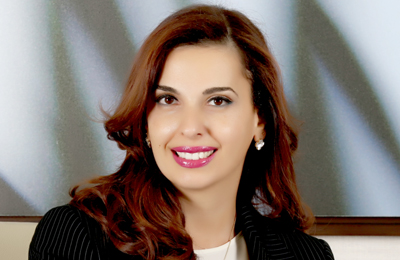Education vs. Practice
 Rima Hadid – Al Masri, board secretary & general counsel, Bahrain Mumtalakat Holding Company
Rima Hadid – Al Masri, board secretary & general counsel, Bahrain Mumtalakat Holding Company
Does contemporary legal education sufficiently equip legal practitioners in the GCC? Mumtalakat’s general counsel addresses this pertinent question.
I am an Australian-qualified solicitor who has been working as a legal consultant in Bahrain for 14 years. During this time, two of my five employers requested that I present my overseas qualifications with renewals. Only one requested that my qualifications are legalised and that the law society where I was qualified, provide a Certificate of Good Standing (in case you were wondering, that was Mumtalakat). I have always found this quite alarming and note that it is a reoccurring theme across other Arabian Gulf states.
The skills of those legal practitioners rendering legal services across the Arabian Gulf, regardless of nationality, where they qualified, what area of law they practice, and the type of entity they practice in are not monitored. Furthermore, continuing legal education along with a skills component is not mandatory by each respective ministry of justice and the local bodies regulating the industry. Why?
I question whether enough debates on the legal profession are occurring in the region (if at all). An open discourse needs to be effected on the relevance of the legal education being delivered to that required by the local legal services market.
Most approaches to legal education are formulaic and doctrinal. The criticism of these approaches is the assumption that all students will enter private practice and be admitted on some formal register. This not the case, nor does it adequately prepare graduates for the realities of today’s legal services market. The global financial crisis in 2008 is a great example of the overhaul that was experienced by the global legal industry, leading to changes in service delivery models, the use of technology and security, growth of legal service providers, as well as the change in the role of in-house legal departments.
As both the head of a legal department managing a team of lawyers, a person who seeks the services of external legal consultants, and mentor of legal interns, I see firsthand how graduates are finding themselves in a complex and structurally-different professional environment to that they expected whilst in law school (or whilst working abroad). In short, there is a misalignment between many law school curricula and the skill set that the changing legal market is in need of, regardless of jurisdiction.
Global pressures and competitive markets require lawyers to be effective communicators and effective service providers in a multi-disciplinary market.
What governs instances where legal practitioners are presented with a situation that is not prescribed by either statute or regulation, but challenges moral or ethical boundaries? It is easy to dismiss this issue by insisting that one should adhere to ‘international best practice,’ but what defines best practice and in which jurisdiction?
This brings us back to the issue of oversight: who is monitoring the standards of the legal services industry and the legal profession, whilst working to improve the satisfaction of the community with the actual services being rendered by practitioners?
The industry or statutory bodies that should be regulating the legal services delivered by the industry, have no means to monitor the actions poorly-qualified ‘lawyers’. There is no effective body to address complaints that would otherwise ensure customer rights and ethical behaviour is upheld.
Legal education must be relevant and encompass (at minimum) subjects such as ethics, communication skills and emotional intelligence. These skills should also feature in continuing legal education, which should be mandatory across the Arabian Gulf, applying on both locally-and internationally-qualified legal practitioners (in private practice and in-house). The programme must be unique to local jurisdictions and the needs of the local market. Internationally-qualified legal practitioners, must be required to confirm their knowledge of basic legal principles of the local jurisdiction. All legal consultants (especially those working in-house) must be qualified by a statutory body, requiring examinable elements.
A law degree does not necessarily make a lawyer.
Columnist:
Rima Hadid – Al Masri, board secretary & general counsel, Bahrain Mumtalakat Holding Company
























































































































